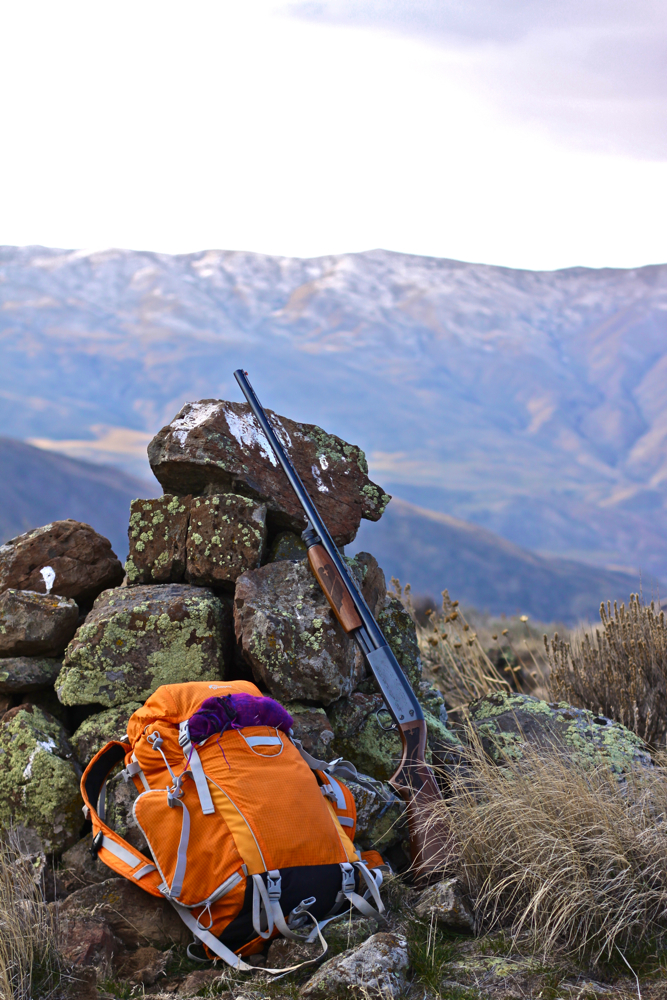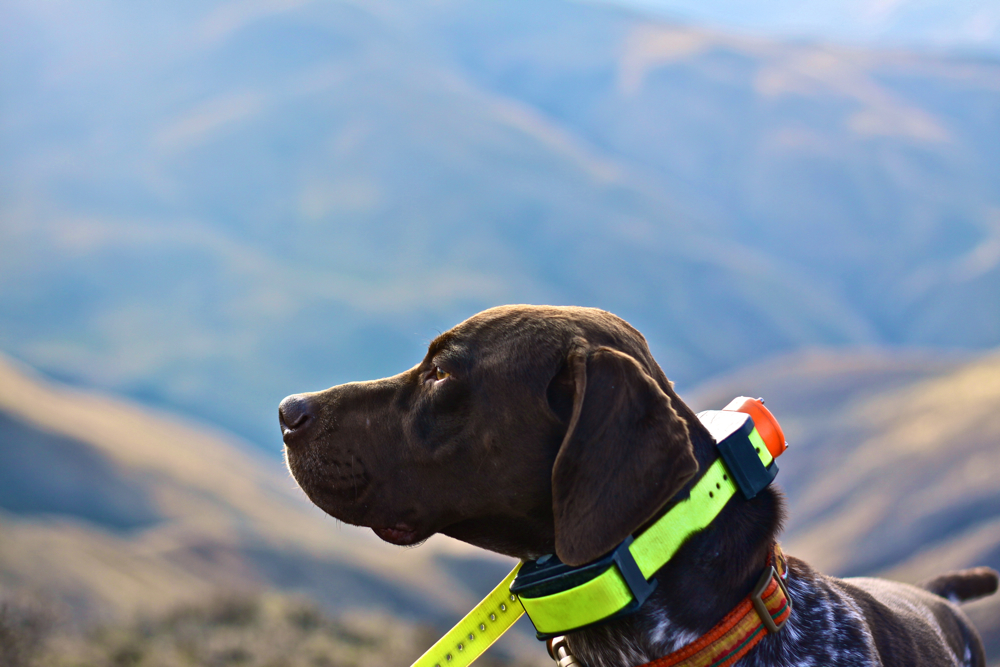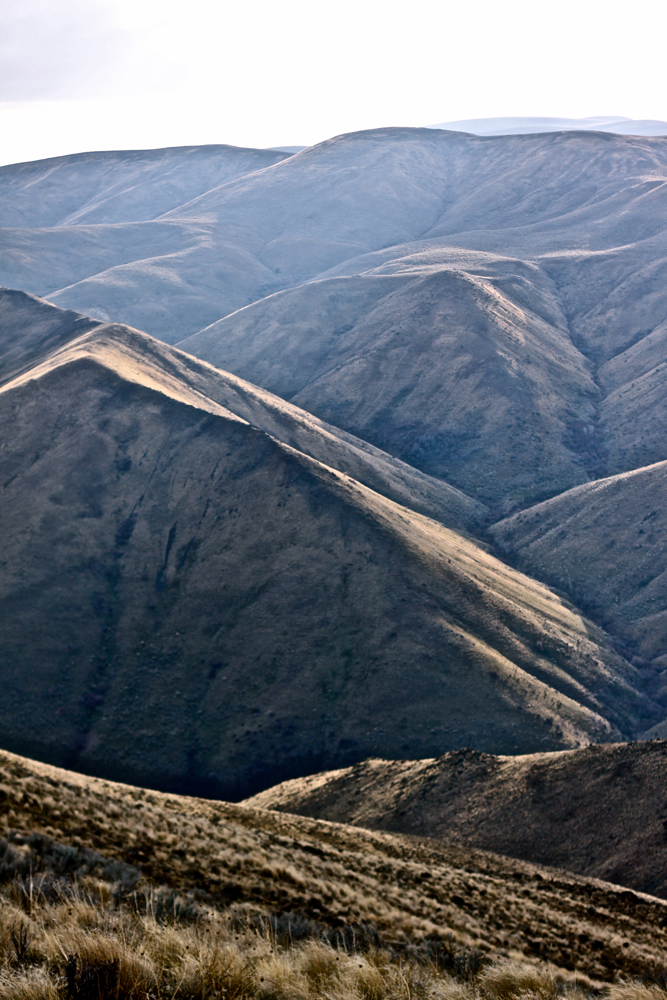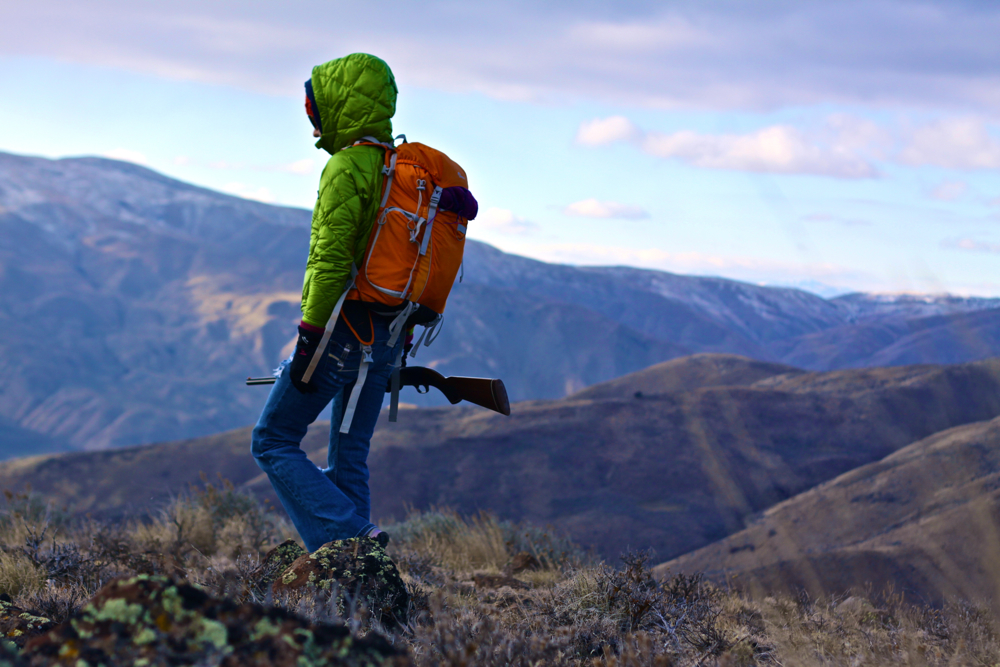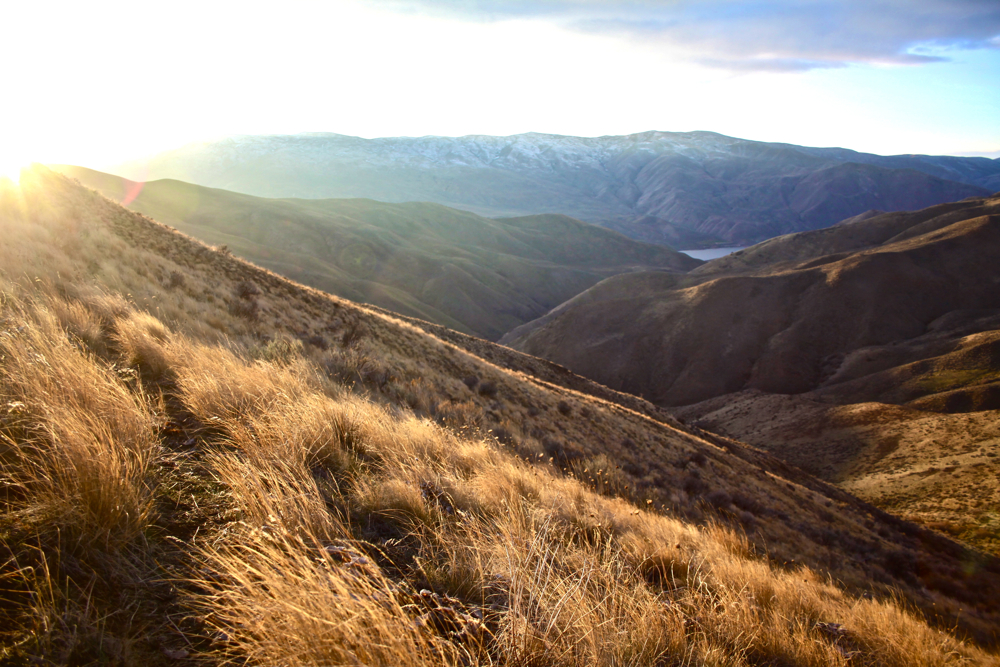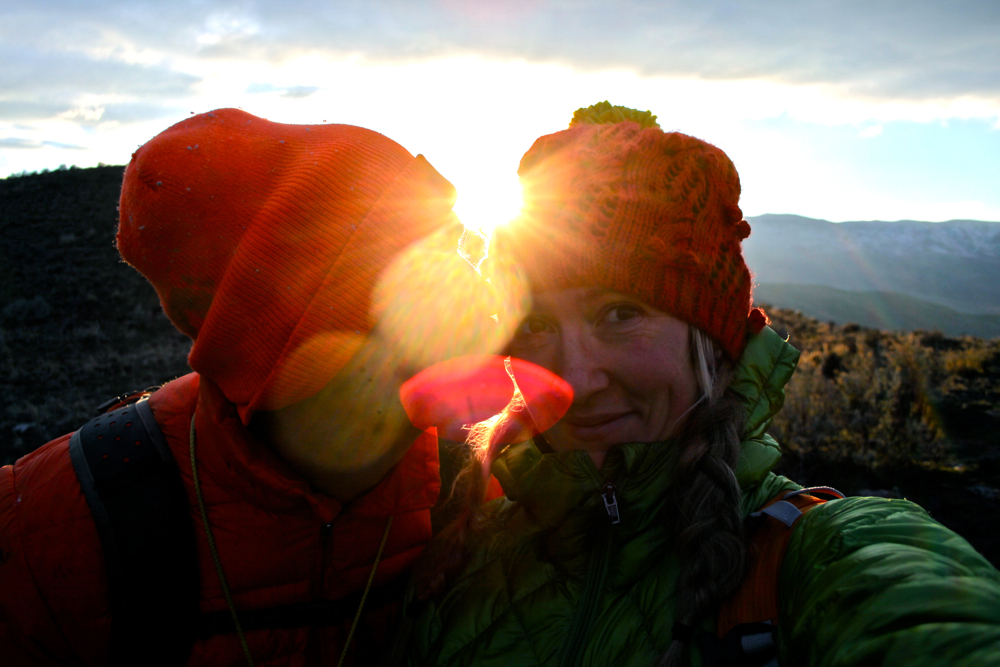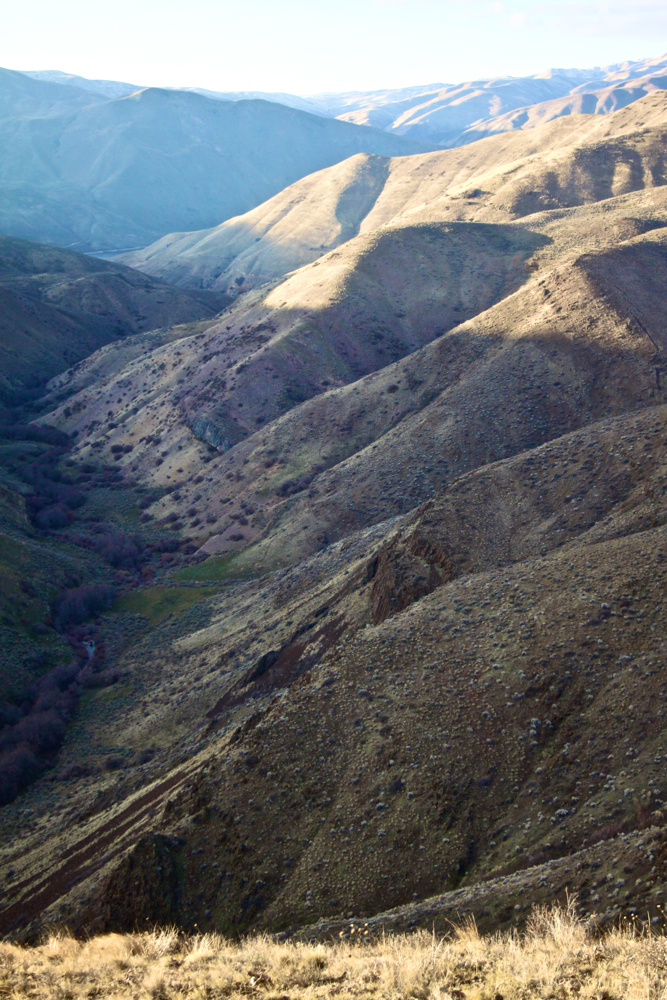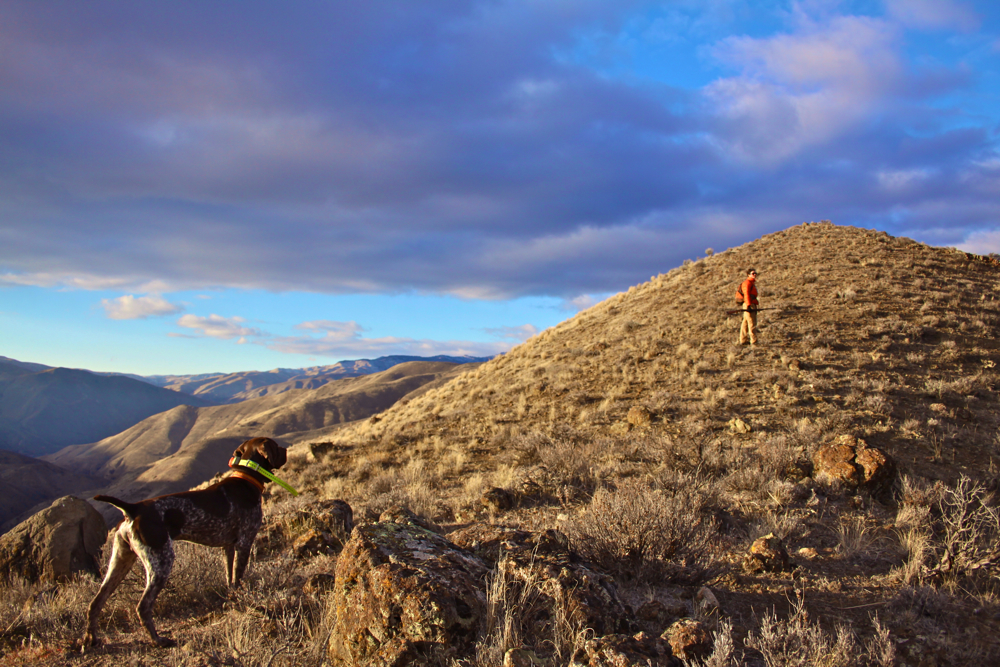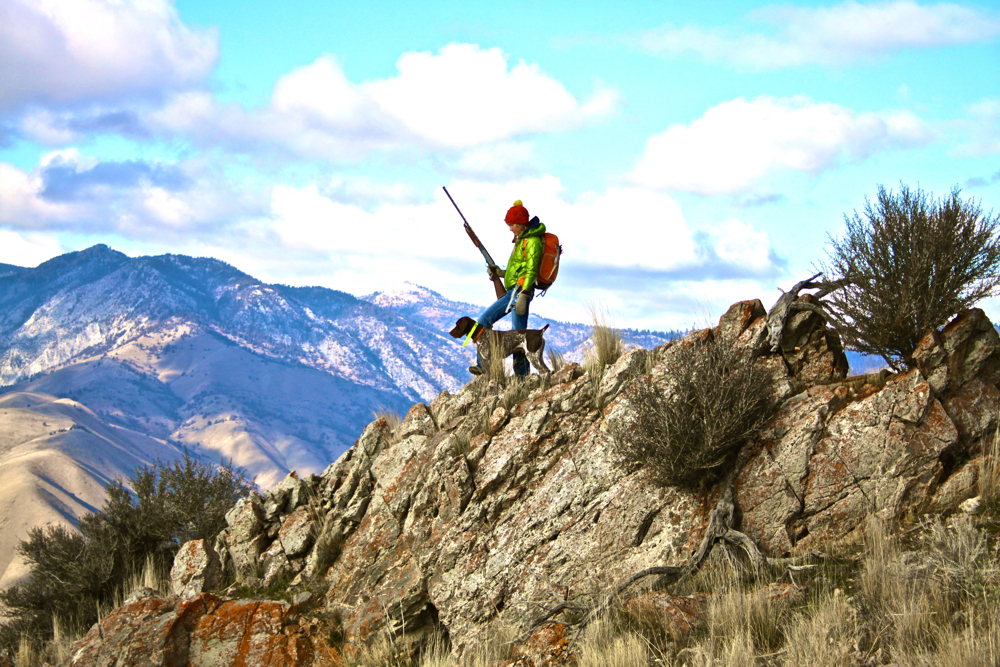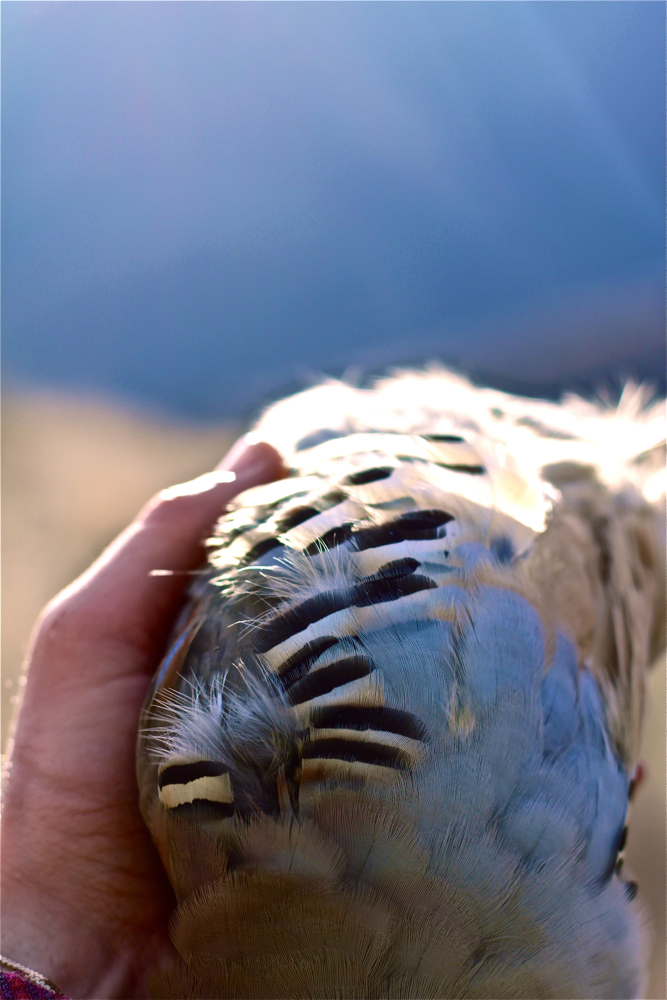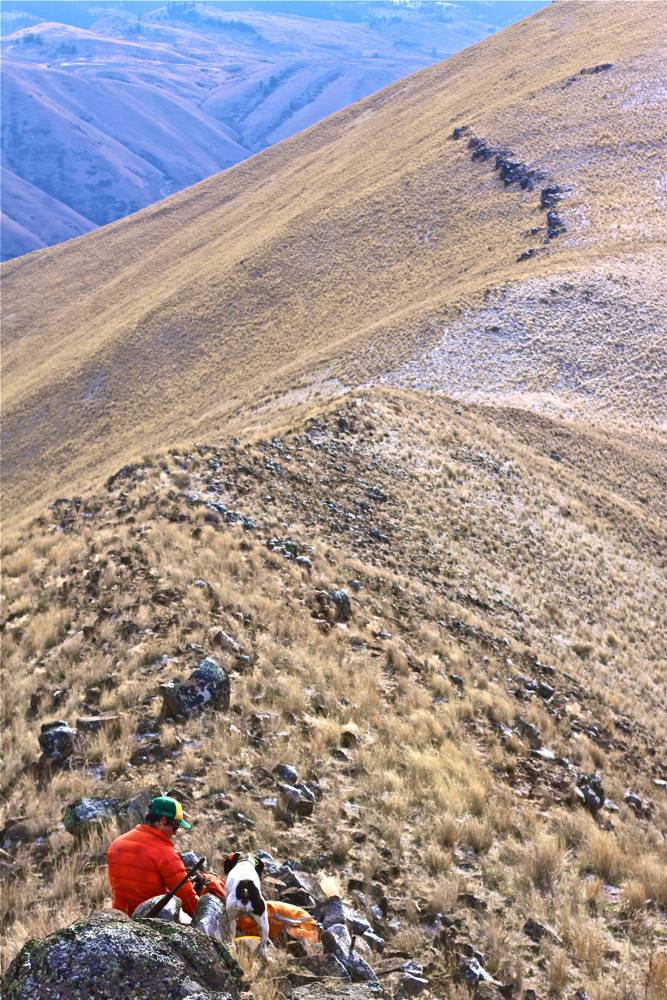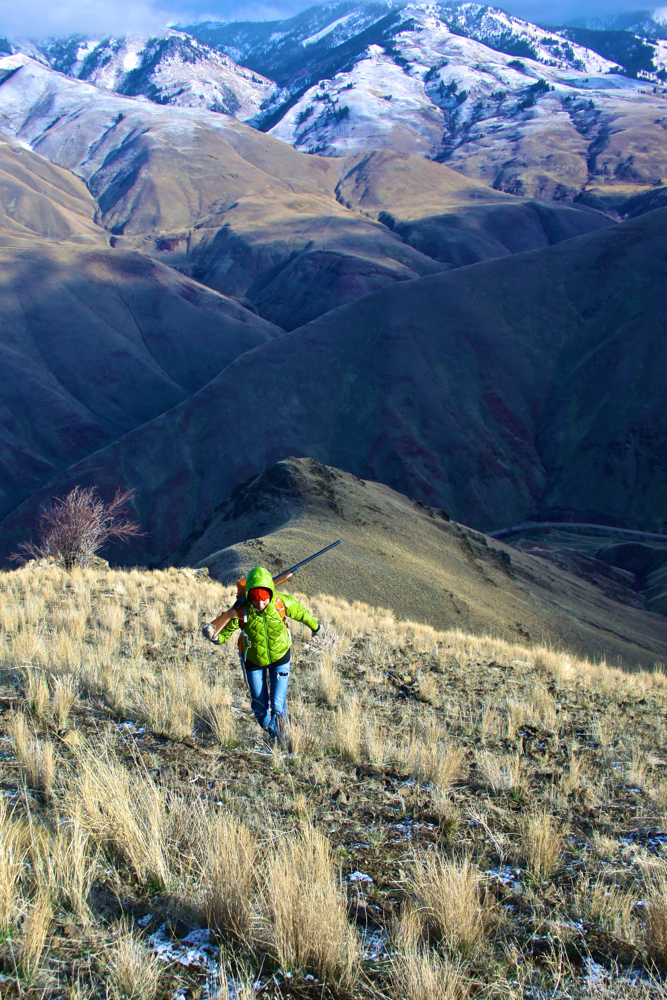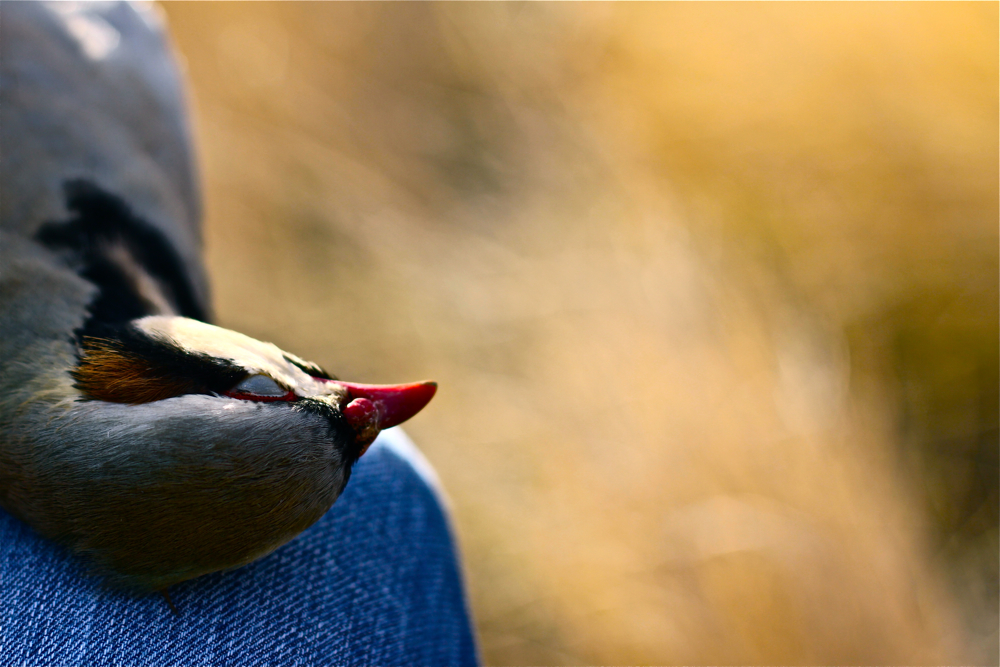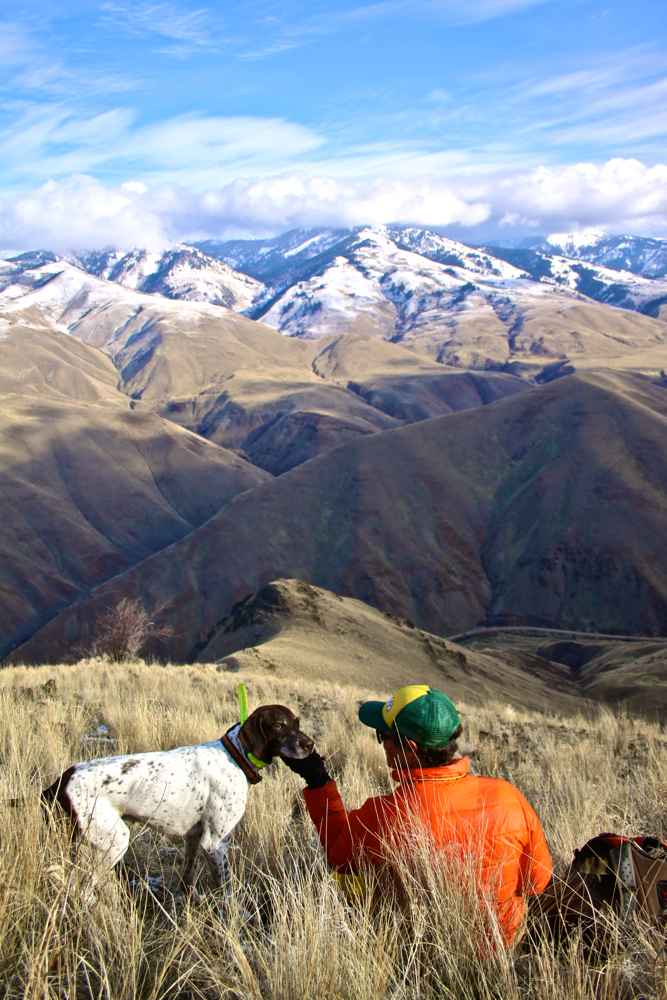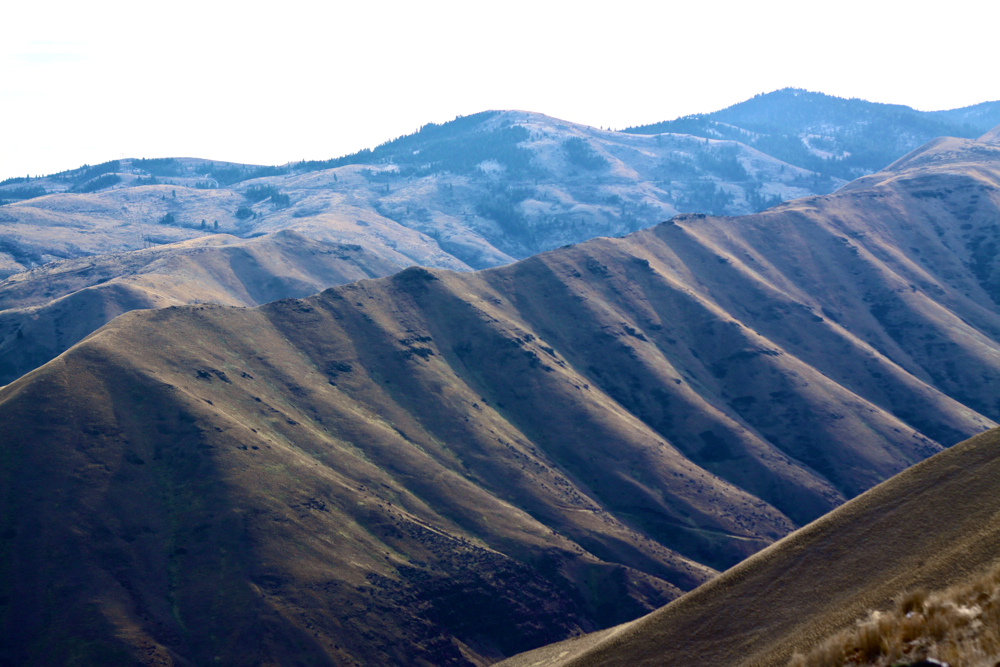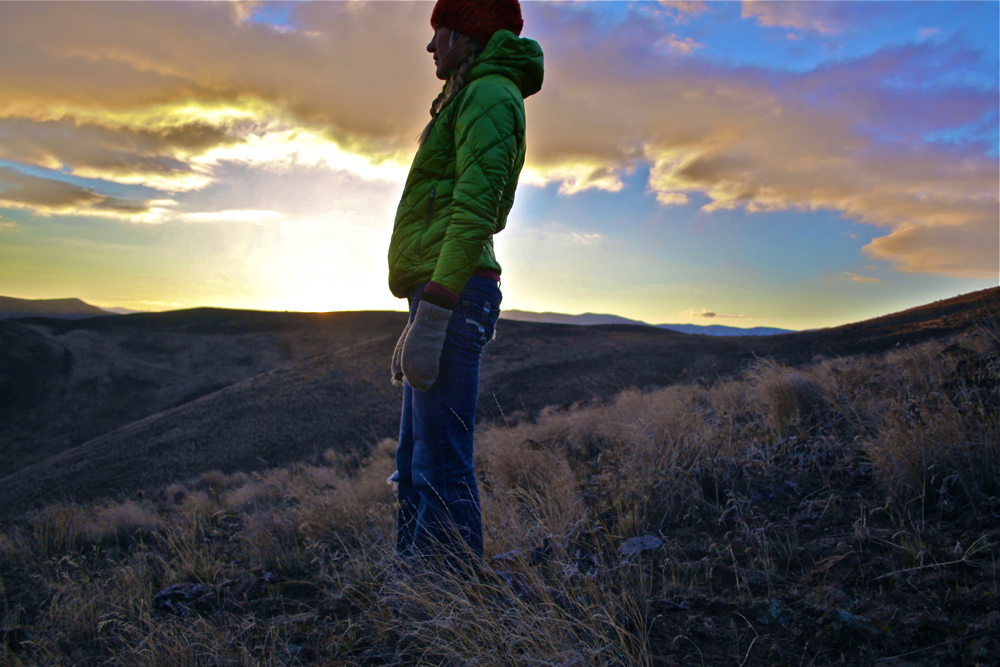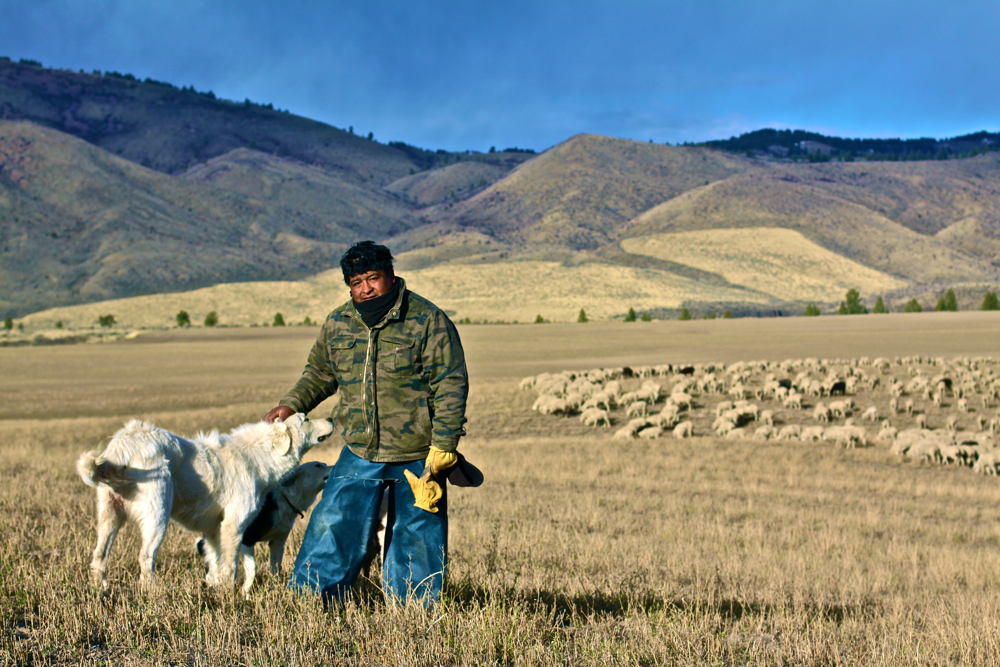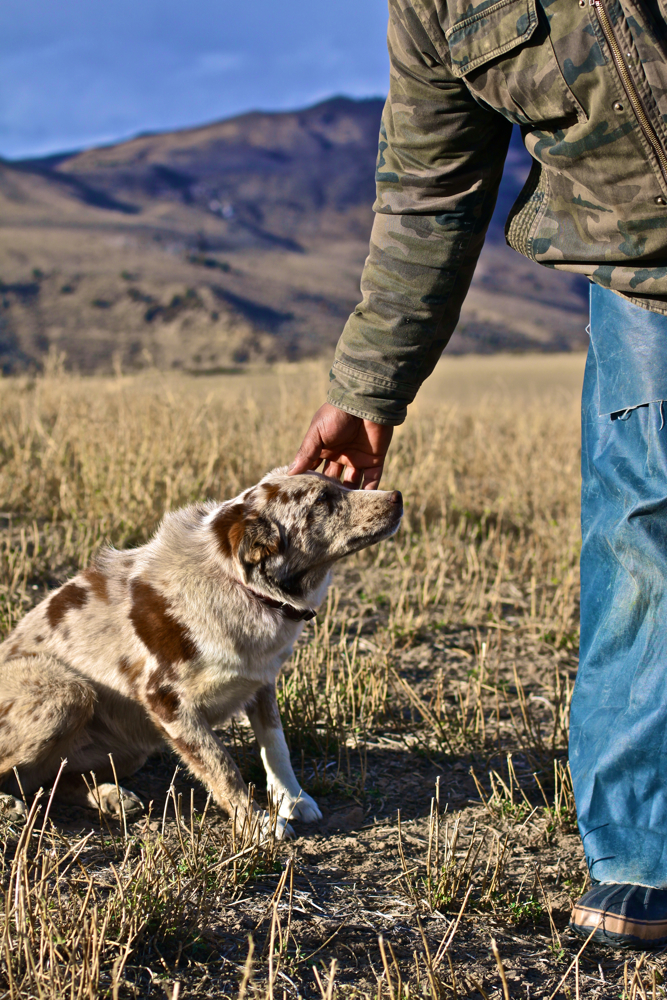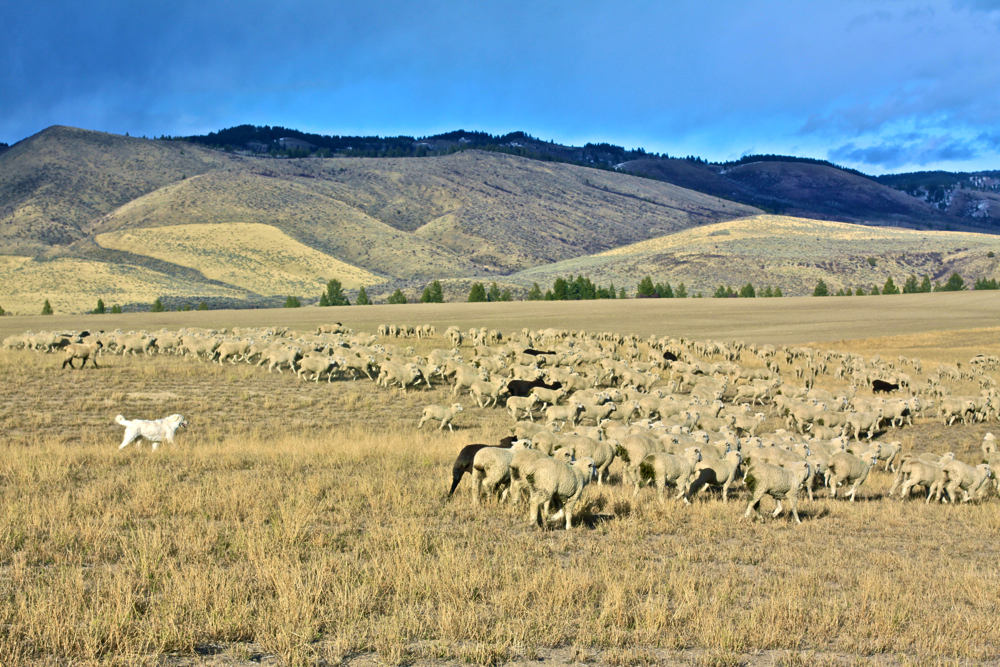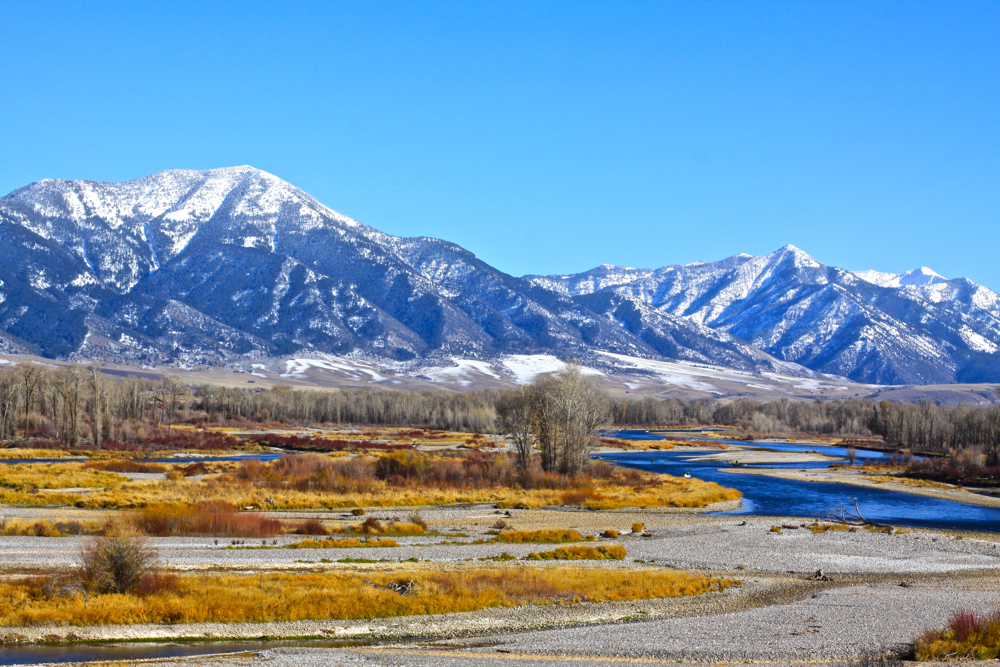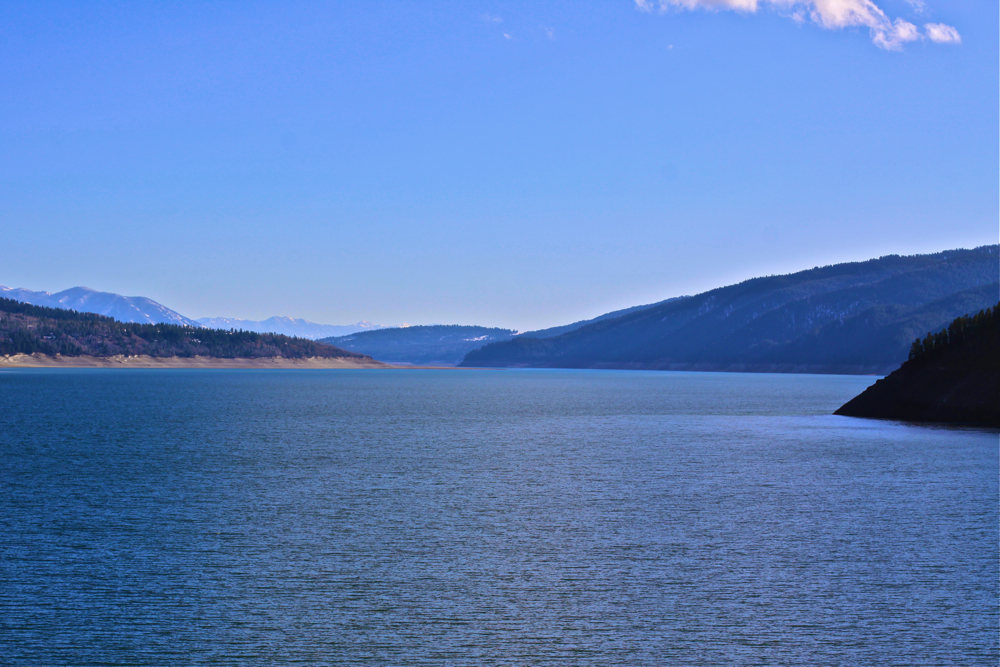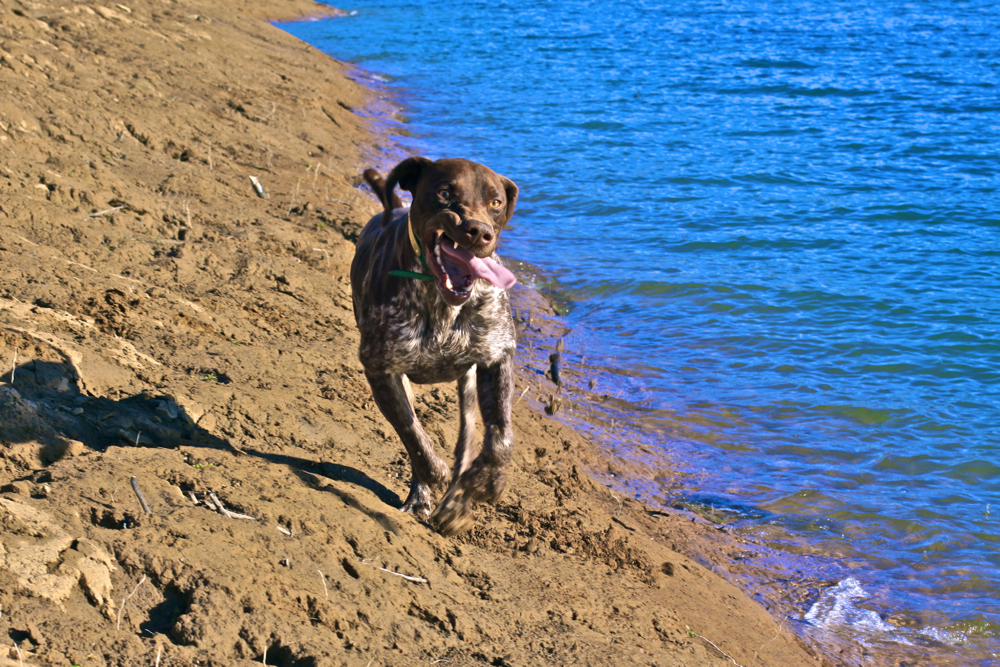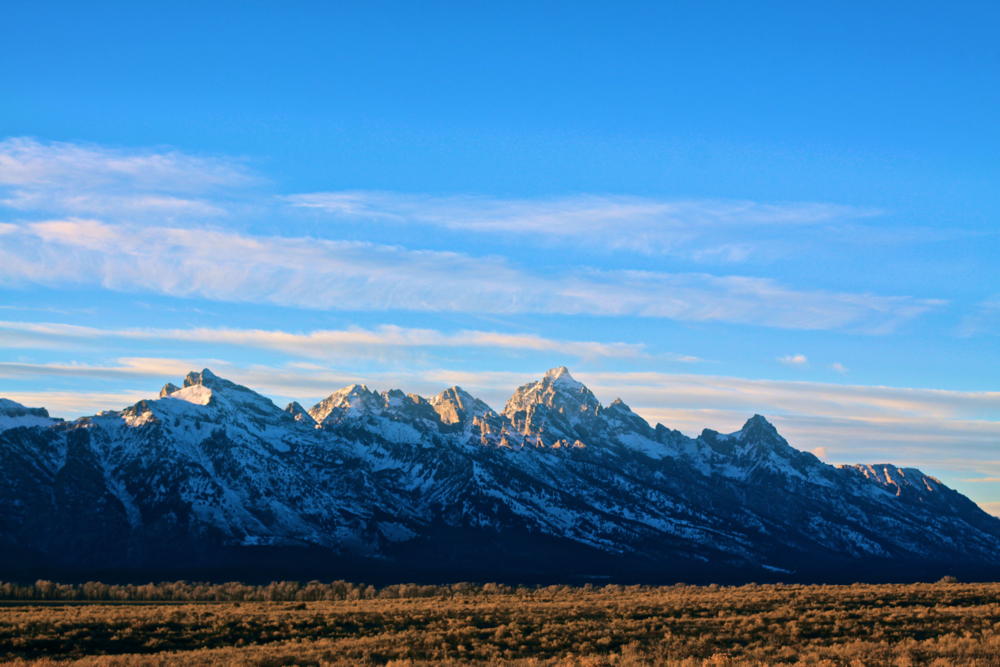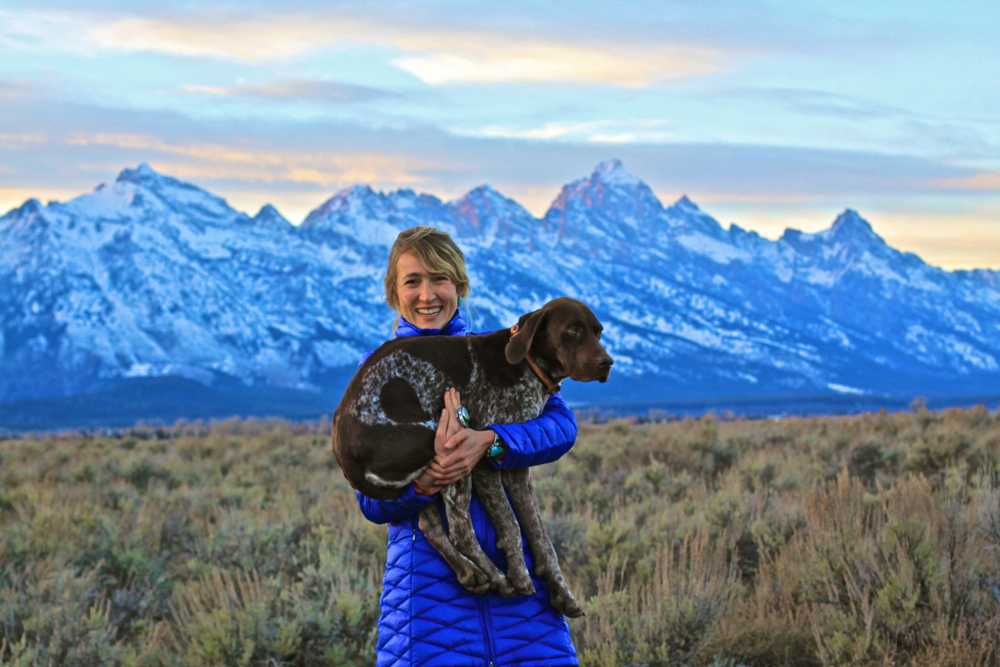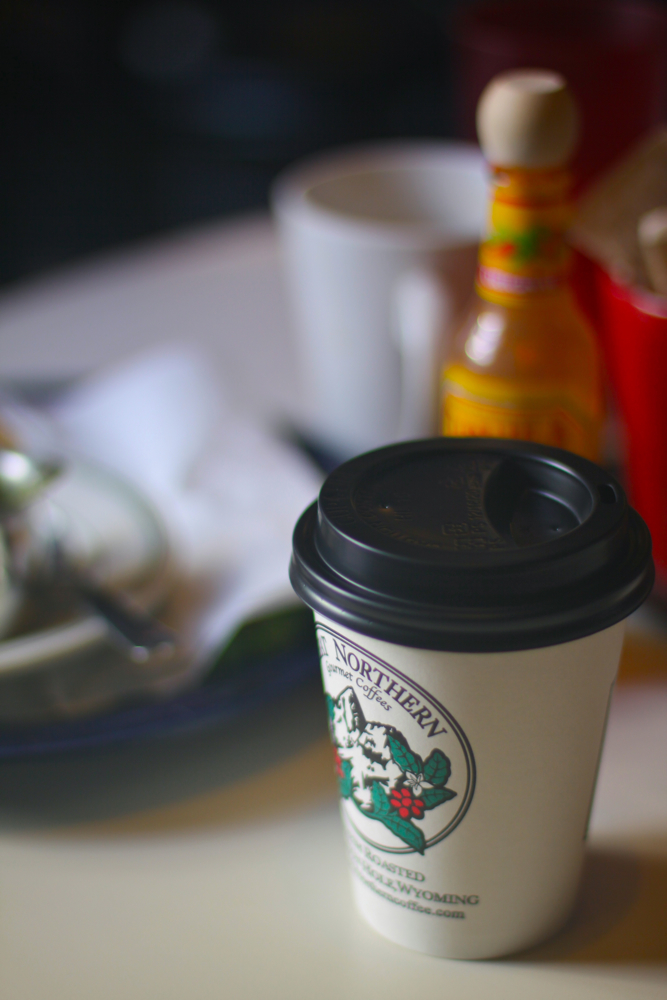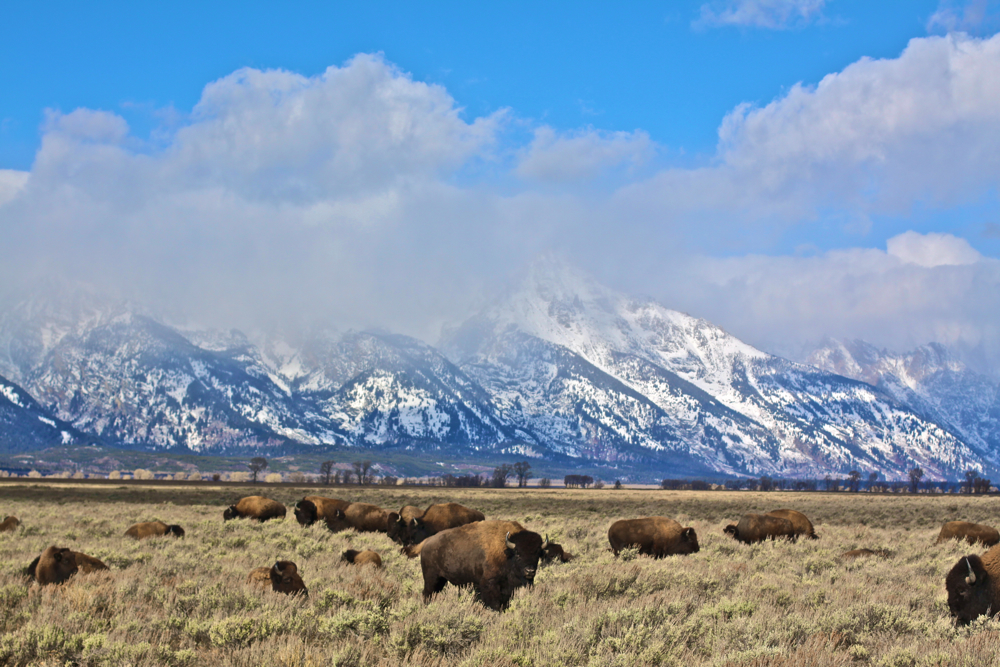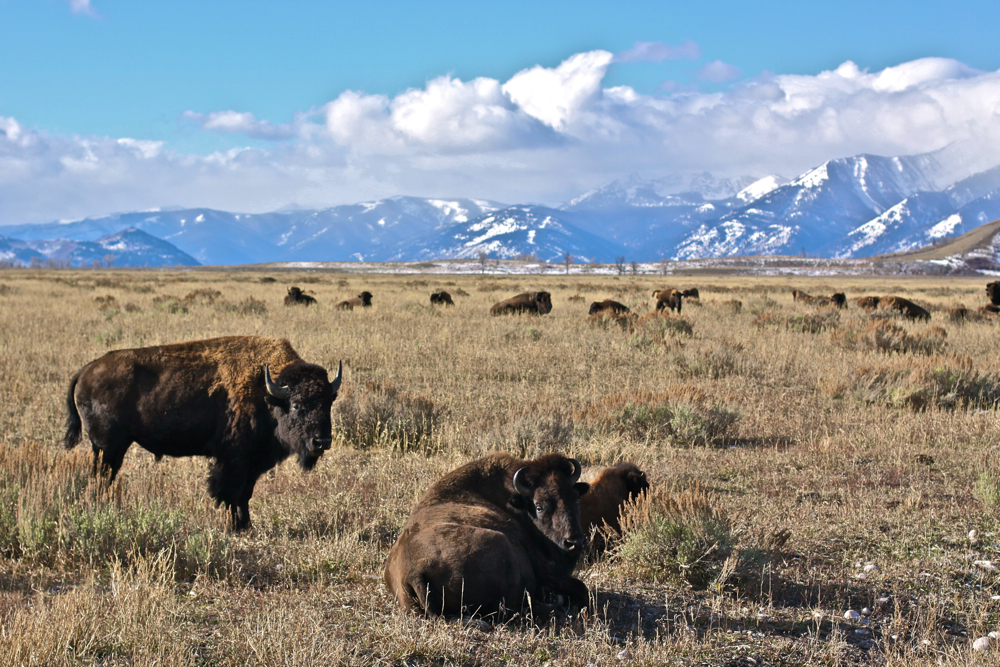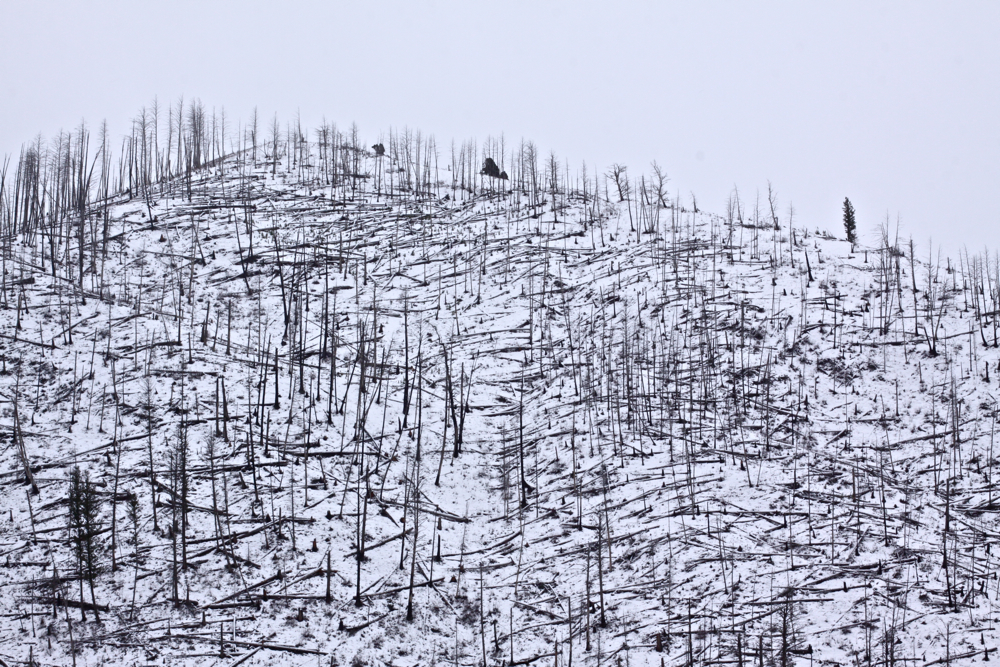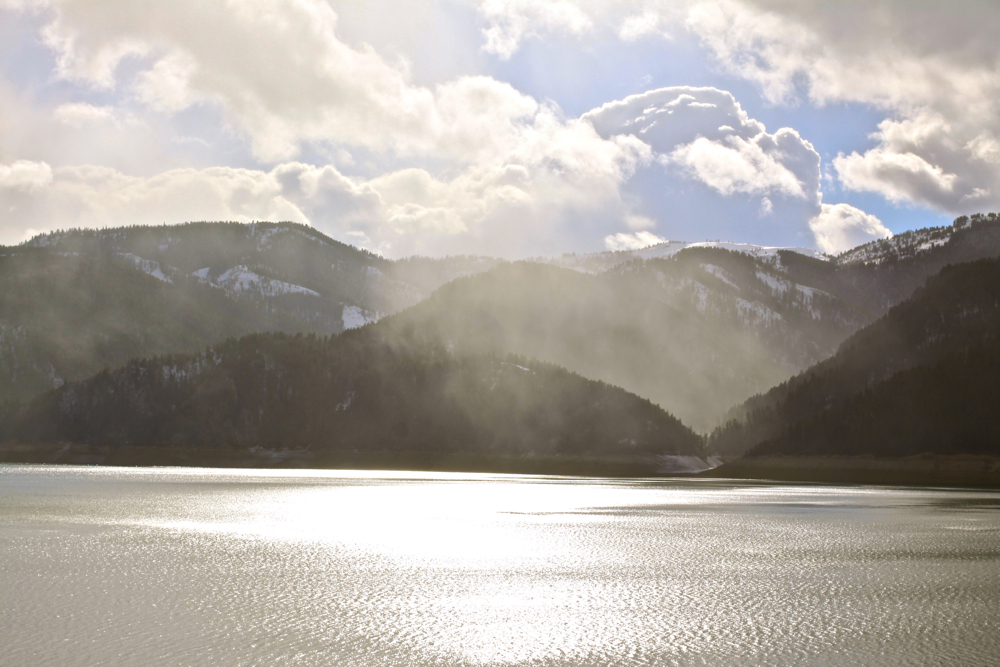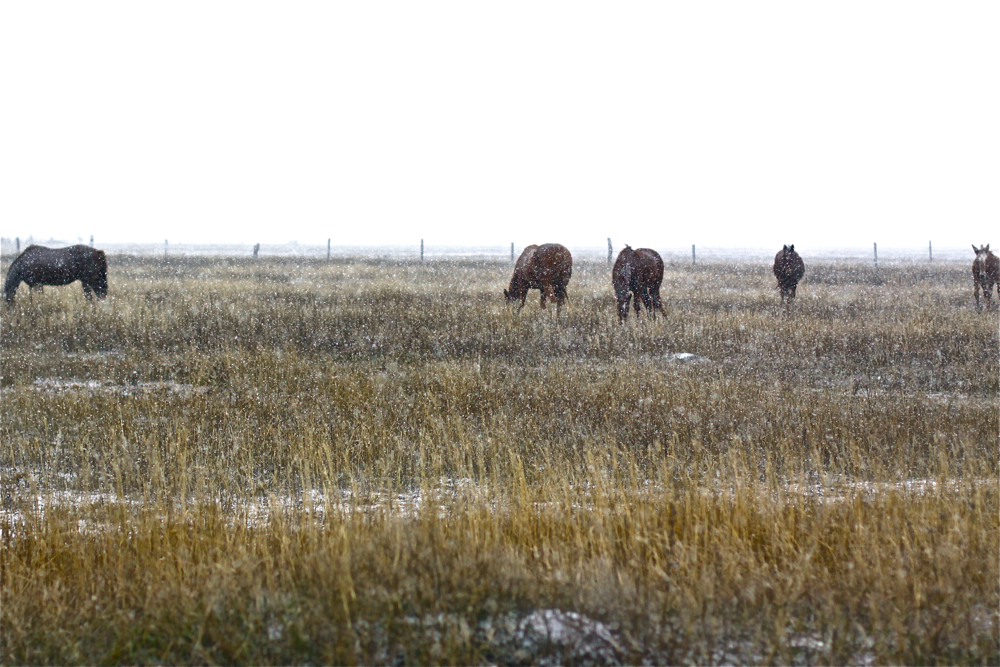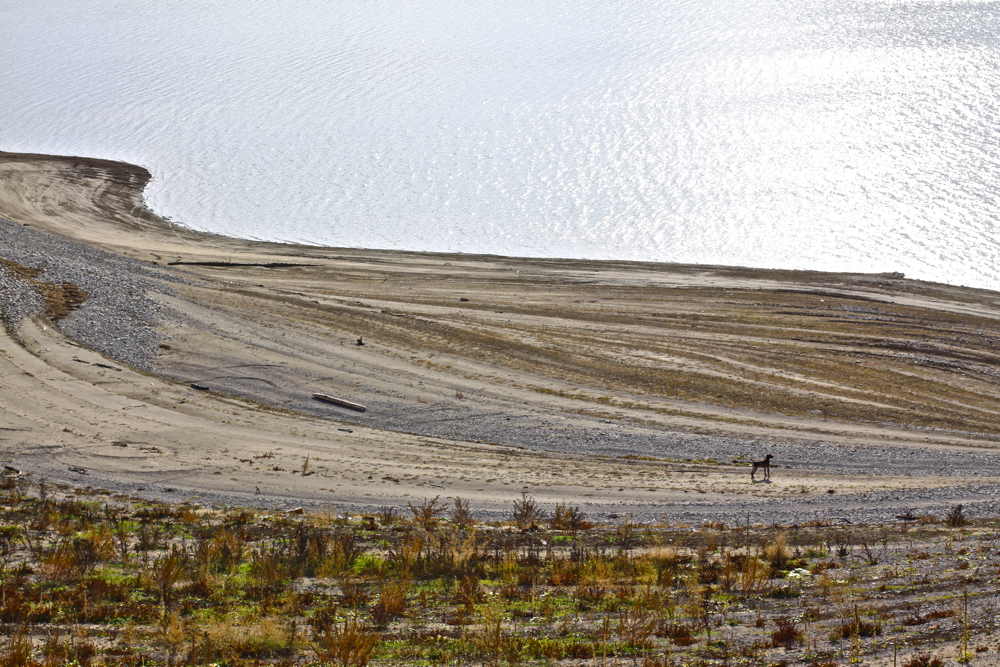May the mountain rise up to meet you, as it is rising up to meet me. Honestly, I have a mountain in my face. There is nothing behind me but space. The next razorsharp ridgeline rises up like a brick wall and the next and the next until the landscape is reduced and augmented, simultaneously, into a series of rugged spines that eventually fall into the lowest point in all of Idaho — Hells Canyon. It’s hard to believe this is the low country of this state, the land is twisted, rugged and vertical but the peaks here top out at a wimpy 4500ft. I am hiking directly up a mountain so steep in some sections that I can reach my hand out in front of my body to touch the face of the slope and steady myself. I am not out of breath, I am not panting from exertion though this is hard work. At home, in Pocatello, I run, hike and ski between 5000 and 9000ft. The air here seems luxurious and thick.
It takes us less than an hour to hike less than a mile with a vertical gain of roughly 2500ft. When we reach the top of our ridgeline I am hungry and I have sweat through my four top layers: sports bra/tank top, wool baselayer, hooded sweatshirt and light down jacket. When I remove my pack to grab my camera and my sandwich, the wind viciously slaps at the sweat stain on my back and I am instantly chilled. I eat my sandwich as quickly as I can, snap a few photographs and dive back into my pack to put a layer of something between my wet jacket and the wind.
Gosh. The wind.
The accordion of ridgelines lays brisk and bellowing in all directions. This country is steep and unforgiving, rugged as a lanky cowboy leaning on a split rail fence, bristling like a coyote with raised hackles in a swaggering breeze that serves to test and refine. The ridges cut the sky before plunging steeply into deep drainages. There is no story here of glacial onslaught and retreat, no hanging valleys or truncated mountain slopes. The land here has been carved away by wind and water over the years. It’s cracked and creaking, like a thing that has only ever known opposites: dry and wet, hot and cold, light and dark. It’s no country for old men.
We are here because this is a dry, inhospitable place littered with basalt. We are here because this is where the chukar live. We are here because our dogs live to hunt birds. We are here because we are hungry and believe in getting our own meat. We are here because the beauty of Idaho begs us to come. We are here because each time we stop and look around at the world we feel our souls sing hymns of praise to the Creator.
How lucky we are to be alive and well. How privileged we are to hunt for our own food. How blessed we are to have dogs that will work for us like our dogs do. I look at Rob and say, “This place is only for you and me.” There is no one else around. I reach up and wrap my arms around the sky and acknowledge a sense of homecoming.
I like to come hunting with Rob because I like to be responsible for the getting of my meat. I eat meat. I think it tastes better if I go out and get it myself, from a wild place. It’s hard work. Using a gun doesn’t make it easy, it just makes my arms tired when I’m hiking up a crazy mountain slope. I like knowing that if something happened to Rob, I could go out and get my own food from a wild place. I don’t want to depend on him that way, I want to be capable. Hunting the way we hunt is a skill. Sometimes we are successful because of our skills, sometimes we are lucky. That said, I am learning this skill from my husband who is a patient teacher and a talented woodsman. I am grateful for his lessons, even when I sass him or inform him that I cannot feel my hands or I ask to stop so I can pee in the sagebrush for the seventeenth time since we started out, I am learning how to hunt and I’m getting better at it. I am also getting better at shooting. Shooting and hunting are two different things, though they sometimes happen in the same place at the same time.
It’s also important to note that I go hunting because I sincerely like it. It challenges me physically and mentally. Sometimes it’s tremendously unpleasant and I want nothing more than to go home, take a hot bath and wear fuzzy slippers. If I feel this way it is because I am cold, hungry and tired and I can barely get my hands to hold on to my shotgun because the steel plates are slowly freezing my fingers despite the fact I have on gloves and mittens and it’s nearly dark and I’m walking down a steep slope and praying I won’t trip and fall to my death. I try not to complain because Robert never complains. I complain only if death is imminent. This is an unwritten law in our household: COMPLAIN ONLY IF DEATH IS IMMINENT. I am the only family member to ever break this law which isn’t saying much because our family consists of two people (if you discount all the livestock). Most of the time, I love every moment of hunting. Robert says I do fine if I have lots of snacks, wool long johns and a good set of mittens. He genuinely loves it when I come hunting with him. He is very pure and does not tell lies. But, to my own credit, I am physically capable of things the average human isn’t capable of. This I know and this is why I make a good hunting partner for my husband.
Today, the ground is frozen, my boots fail to sink into the dirt and anchor my steps. It’s hard walking. Every other stride my foot scuttles off a frozen chunk of mud, a clump of gritty snow or a pocket of elk poop. If those things fail to unsettle my gait, I stumble on loose chunks of basalt rock that, once kicked loose, tumble eternally down a steep mountain face until they disappear from sight. Each time I kick a rock free, I think to myself, ” I could fall down this mountain just like that, gaining momentum with each roll and bounce.” I keep moving as fast and carefully as I can.
Hunting chukar is a total body workout. I walk uphill until I feel my quadriceps screaming. When I hike downhill, my brakes in my legs start to give out, I think I can hear them squealing, smell them burning, I get wishy washy noodle legs, sturdy as whips, wobbling like hospital jello. When we take a break, it’s short. It’s too cold to stop for very long and it’s hard to get the dogs to stand still with us. We don’t ever truly stop to rest, resting is an inconvenience. This is a sun up to sun down affair. It’s quite exhausting. If the dogs can’t find birds, or if we fail to get them one of the birds they have found, it’s utterly disheartening.
On the next ridgeline over, we see a herd of elk, I hoped we would. They have come out of the mountains to lower ground where the snow is shallow and the forage is still in reach. I’ve seen their sign as we have hiked, their hoof prints, their droppings like chocolate covered almonds coated in a thin, twinkling layer of frost. They are standing broadside to us, heads up, testing wind with flaring nostrils, chewing their wild hay serenely. Elk are beautiful. Elk are big.
I say to Rob as we walk, “We are working as hard as elk for our food right now. We might be working even harder, even with our swanky down jackets, gloves, shotguns, woollies and ridiculously talented bird dogs.“
Rob says, “Yes, we are.” He can be a man of few words when he is hunting.
My mouth is partly frozen by the wind and I reiterate clumsily, “No, really! Look at them over there. They get a bite of food for every step they take, maybe more. How much energy will we spend today, you and I and the dogs, to get a few birds to take home for dinner? The energy exchange here is horribly imbalanced! We will never earn back what we have burned in calories today, hiking and shivering, stumbling and stuttering. This is the hardest we could ever work for a chicken dinner!“
Robert’s reply is simple and distracted, “Yup. True. Jillian, Tater Tot just hit scent. Can you see the direction he is pointing? Head over there and be ready, those birds are holding on the back side of that rock pile and they’ll go fast when they go. Hurry up.“
Apparently, hunting is not for the conversationalists.
When it’s all said and done, I hunt with Robert for three days and I outshoot him for the first time ever! While I try not to feel too proud of that fact, I am, just a little bit, and the sweet thing is that Rob is proud too. He drops me in Boise where we have staged our other truck at a friend’s house so I can head home and get back to work in the studio. I am lonesome for him as soon as he leaves and Boise feels too big and full and loud. The sky is far away from me in the city, the distances between streets and buildings are too measured, too organized. The sidewalks are hard beneath my boots, every step on concrete feels like a small shock. I get in the truck and start driving, country music on the radio, one dog keeping me company on the bench seat as the Snake River Plain rushes past. I feel my heart beating in my chest and know that my pulse resembles the land I just spent three days knowing and walking — ascending and descending in tempo rubato, rugged, rough and ready, cut by a thousand rivers run dry, sun warmed and wild, seamlessly pressed to the sky.
